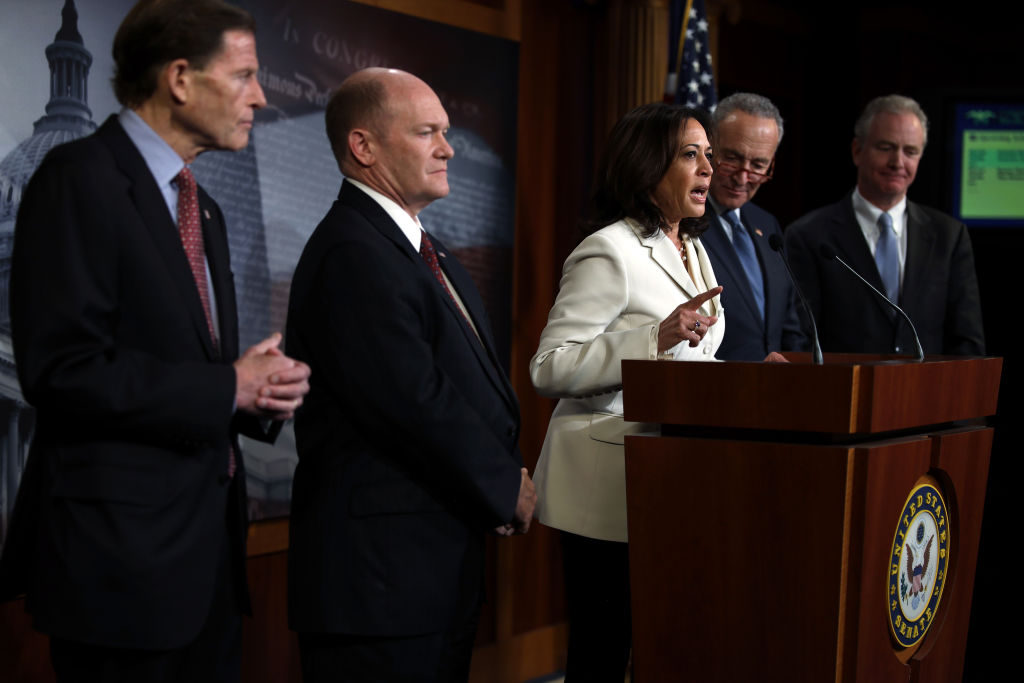The single most important thing to understand about the Senate impeachment trial is that it is all for show, meant to influence the November election. Yes, the House managers and president’s attorney will present formal arguments to the Senate. The real argument, though, is intended for the public in 10 months. It always has been. That argument will play out in the media and on the campaign trail.There are three sets of elections that matter: presidential ballots in six or seven contested states (the industrial Midwest, Florida, and a few others), Senate ballots in Maine, Colorado, Arizona, Iowa and North Carolina (where Republican incumbents are vulnerable), and about 30 Democratic House members in red districts, whose fate will decide the next Speaker. Unless Trump holds the Senate, he cannot move forward with his agenda of fundamentally changing the federal courts and rolling back the administrative state. If the Democrats retain the House, Trump will face still more investigations and cannot pass major legislation.Speaker Nancy Pelosi always understood removing Trump was extremely unlikely. That’s why she was so reluctant to embark on impeachment. But after the ‘whistleblower’ (working with Adam Schiff’s office) complained about Trump’s call to Ukraine, her caucus thought they finally had a convincing case. They didn’t, at least not as far as independent voters were concerned. Polls show the country is still evenly split on the issue, far short of the super-majority needed to convince senators to remove a president. This split leaves Senate Democrats with two strategies; they will use both. One is to force vulnerable senators to take hard votes about witnesses and say any negative votes are a ‘cover-up’. Second, Democrats will return to their Kavanaugh strategy of adding last-minute ‘revelations’ and calling them ‘bombshells’. The mainstream media, eager to damage the president and fill the airwaves, will play them up. If it bleeds (Trump), it leads. Again, the entire strategy is to inflict political damage in November, not only on Trump but on vulnerable Republican senators.Senate Majority Leader Mitch McConnell’s counter is to keep Democratic presidential candidates sitting mute in their seats throughout the entire evening news cycle as crucial primaries approach in Iowa, New Hampshire, South Carolina, and Nevada. Nothing will irritate Sens. Warren, Sanders, Klobuchar and Bennet more or prompt them to seek a quick ending. Meanwhile, Trump’s team will argue ferociously (but in somber, legal language) in the Senate chamber while his media-savvy attorneys do prime-time TV interviews, facing clunkers like Jerry Nadler and Adam Schiff. They will say the new information is shoddy and only shows how much the Democrats need to bolster their already-weak case.Remember: the audience is not the Senate. It never was. It’s the voting public. From now on, the airwaves will be full of sound and fury, signifying November.
This split leaves Senate Democrats with two strategies; they will use both. One is to force vulnerable senators to take hard votes about witnesses and say any negative votes are a ‘cover-up’. Second, Democrats will return to their Kavanaugh strategy of adding last-minute ‘revelations’ and calling them ‘bombshells’. The mainstream media, eager to damage the president and fill the airwaves, will play them up. If it bleeds (Trump), it leads. Again, the entire strategy is to inflict political damage in November, not only on Trump but on vulnerable Republican senators.Senate Majority Leader Mitch McConnell’s counter is to keep Democratic presidential candidates sitting mute in their seats throughout the entire evening news cycle as crucial primaries approach in Iowa, New Hampshire, South Carolina, and Nevada. Nothing will irritate Sens. Warren, Sanders, Klobuchar and Bennet more or prompt them to seek a quick ending. Meanwhile, Trump’s team will argue ferociously (but in somber, legal language) in the Senate chamber while his media-savvy attorneys do prime-time TV interviews, facing clunkers like Jerry Nadler and Adam Schiff. They will say the new information is shoddy and only shows how much the Democrats need to bolster their already-weak case.Remember: the audience is not the Senate. It never was. It’s the voting public. From now on, the airwaves will be full of sound and fury, signifying November.
The Senate impeachment trial is all about November
The real argument is intended for the public in 10 months

Democratic senators Richard Blumenthal, Chris Coons, Kamala Harris, Chuck Schumer and Chris Van Hollen
The single most important thing to understand about the Senate impeachment trial is that it is all for show, meant to influence the November election. Yes, the House managers and president’s attorney will present formal arguments to the Senate. The real argument, though, is intended for the public in 10 months. It always has been. That argument will play out in the media and on the campaign trail.There are three sets of elections that matter: presidential ballots in six or seven contested states (the industrial Midwest, Florida, and a few others), Senate ballots in Maine,…

















